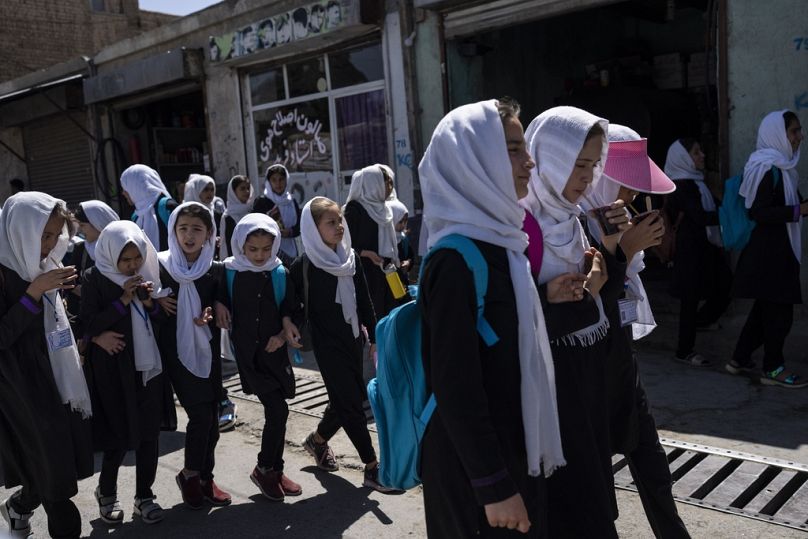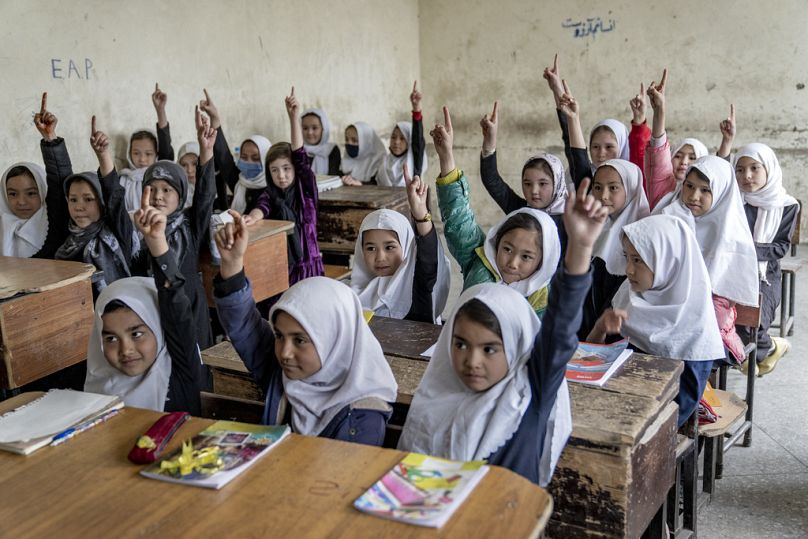Having stormed back to power in 2021, Afghanistan's fundamentalist regime has restored many of the draconian policies it enforced in the 1990s.
Afghanistan's school year has begun, but girls will not be visible in many of its classrooms.
 ADVERTISEMENT
ADVERTISEMENT
 ADVERTISEMENT
ADVERTISEMENT
The Taliban has barred female pupils from attending classes beyond the sixth grade, making it the only country with formal restrictions on female education.
The UN children's agency says more than 1 million girls are affected by the ban. It also estimates 5 million were out of school before the Taliban takeover thanks to a lack of facilities and other factors.
The Taliban's education ministry marked the start of the new academic year with a ceremony that female journalists were not allowed to attend. The invitations sent out to reporters said: "Due to the lack of a suitable place for the sisters, we apologise to female reporters."
During a ceremony, the Taliban's education minister, Habibullah Agha, said that the ministry is trying "to increase the quality of education of religious and modern sciences as much as possible."
The minister also called on students to avoid wearing clothes that contradict Islamic and Afghan principles.
Abdul Salam Hanafi, the Taliban's deputy prime minister, said they were trying to expand education in "all remote areas in the country." However, the Taliban have been prioritising Islamic knowledge over basic literacy and numeracy with their shift toward madrassas, or religious schools.
The Taliban previously said that girls continuing their education contravened their strict interpretation of Islamic law, and that certain conditions were needed for their return to school. However, they have made no progress in creating said conditions.
When they ruled Afghanistan in the 1990s, they also banned girls' education.
Despite initially promising a degree of moderation in its policies after sweeping back to power, the group has also barred women from higher education, many public spaces, and most jobs.
The ban on girls' education remains the Taliban's biggest obstacle to gaining international recognition as the legitimate rulers of Afghanistan.
Although Afghan boys have access to education, NGO Human Rights Watch has criticised the Taliban, saying their "abusive" educational policies are harming boys as well as girls.
In a report published in December, the group said there has been less attention to the deep harm inflicted on boys' education. Many qualified teachers, particularly women, have left, and attendance has been hurt by regressive curriculum changes and an increase in corporal punishment.












